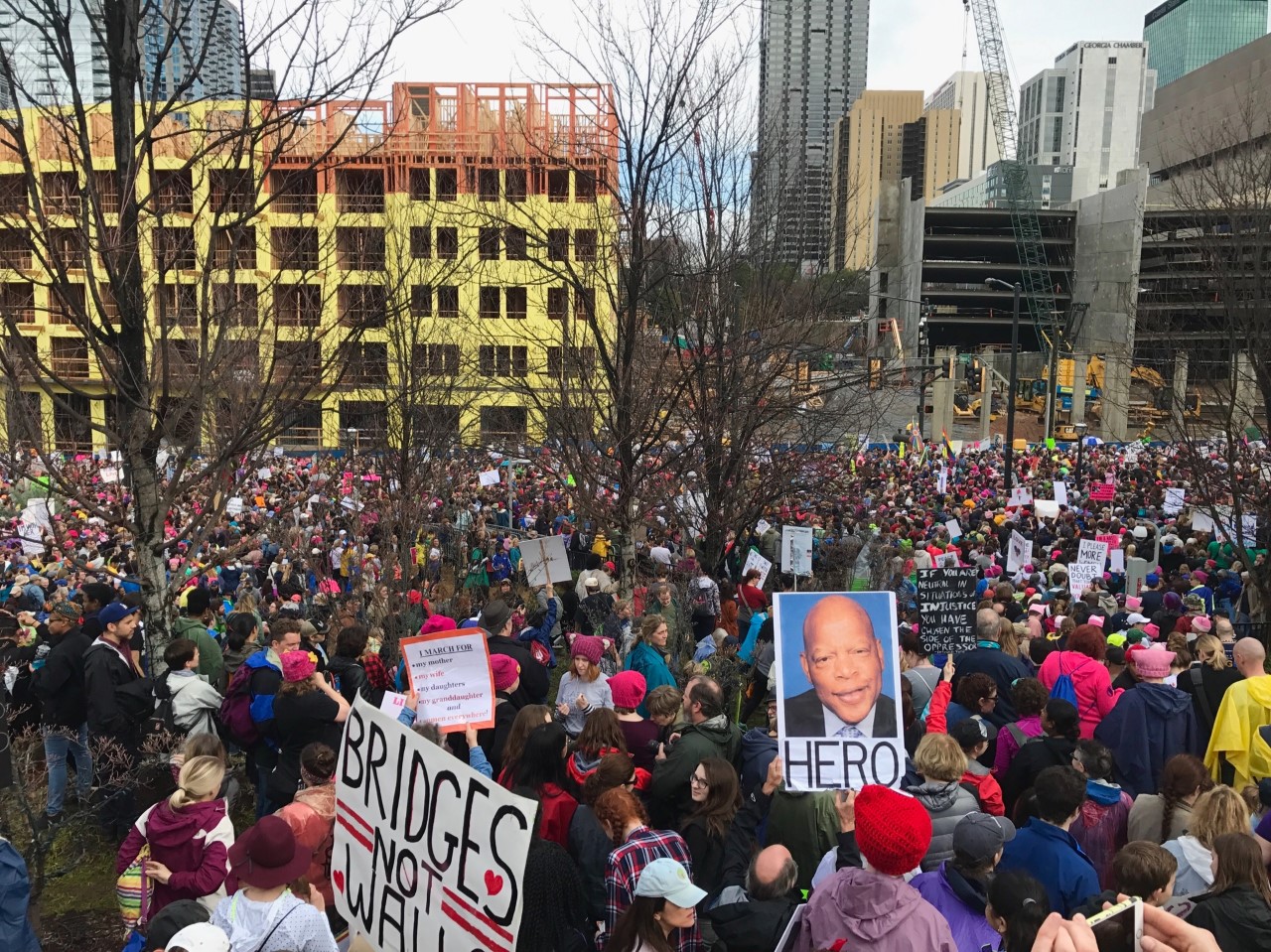
Love Wins at the Atlanta Women’s March
While people from all over Georgia came to support the Women’s March in Atlanta, they were not all there for the same reason.
Current and former students at the University of Georgia took part in the march in Atlanta that drew approximately 60,000 people. Then they were able to express their thoughts and grievances.

“It was inspirational,” Rose Foisy, a junior marketing major from Brunswick, said. “There were 60,000 people in Atlanta alone. It was just a really awesome experience to be surrounded by so many other women and men and children who had the same mindsets and beliefs and all wanted to stand together for the same thing.”
Aleia Bellcross and Laura Nevill, an LGBTQ couple, went to the march to show their support for a plethora of different topics.
While each went to show their stance on LGBTQ rights, Nevill also wanted her feelings of support for the pro-choice and Black Lives Matter movements to be heard, along with all those people who could not attend the march to fight for the change they want to see in their country.
“If you can show up to these kind of marches, I think that’s so important because it’s the people who marched throughout history that gave us the rights we have right now,” Nevill said. “It’s those women, and we are those women now.”
Bellcross, a chemistry and environmental major from Roswell, wanted her stance on issues in the environment to be expressed.

Even though people were there to fight for different issues, Bellcross believed each person was united in a singular cause.
“You felt very safe and supported by the people around you,” Bellcross said. “People were there for different reasons. People were there to fight against xenophobia and stuff like that. It felt like they were also supporting the other causes. It was very much all for one and one for all.”
Grady alum, Katie Baumberger, attended the march in Washington D.C. and felt similarly to those who participated in other marches.
Baumberger’s biggest takeaway from the event was what was requested of the participants after the march.
“They have a website and a Facebook page where you can sign up with the women’s movement and read about a 10 step plan to act upon for the next 100 days after the march,” Baumberger said.
No matter what issues that women like these will be fighting for in the coming months, they all say one thing will remain the same.
“It’s our turn to fight for ourselves and fight for each other,” Nevill said.
Kalli Drake, Lydia Cordero, Nicholas Cordts, & John Durham